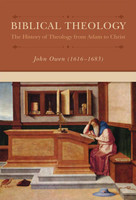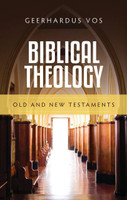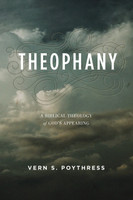
Who Shall Ascend the Mountain of the Lord? A Biblical Theology of the Book of Leviticus (Morales)
"Who shall ascend the mountain of the LORD?" —Psalm 24:3
In many ways, this is the fundamental question of Old Testament Israel’s cult—and, indeed, of life itself. How can creatures made from dust become members of God's household "forever"? The question of ascending God's mountain to his house was likely recited by pilgrims on approaching the temple on Mount Zion during the annual festivals. This entrance liturgy runs as an undercurrent throughout the Pentateuch and is at the heart of its central book, Leviticus. Its dominating concern, as well as that of the rest of the Bible, is the way in which humanity may come to dwell with God. Israel's deepest hope was not merely a liturgical question, but a historical quest.
Under the Mosaic covenant, the way opened up by God was through the Levitical cult of the tabernacle and later temple, its priesthood and rituals. The advent of Christ would open up a new and living way into the house of God—indeed, that was the goal of his taking our humanity upon himself, his suffering, his resurrection and ascension.
In this stimulating volume in the New Studies in Biblical Theology, Michael Morales explores the narrative context, literary structure and theology of Leviticus. He follows its dramatic movement, examines the tabernacle cult and the Day of Atonement, and tracks the development from Sinai’s tabernacle to Zion’s temple—and from the earthly to the heavenly Mount Zion in the New Testament. He shows how life with God in the house of God was the original goal of the creation of the cosmos, and became the goal of redemption and the new creation.
Addressing key issues in biblical theology, the works comprising New Studies in Biblical Theology are creative attempts to help Christians better understand their Bibles. The NSBT series is edited by D. A. Carson, aiming to simultaneously instruct and to edify, to interact with current scholarship and to point the way ahead.
Table of Contents:
1. Leviticus within the Pentateuch: A theological structure
Introduction
The structure of the Pentateuch
Conclusion
2. Longing for Eden: Genesis, the narrative context of Leviticus
Created to dwell in God’s house: the Pentateuch's prologue
Deepening exile from the presence of God: the Pentateuch’s plot
Excursus: cultic theology in the primeval history
3. Returning to Eden: Exodus, the narrative context of Leviticus
Redeemed through the waters: Exod. 1:1 - 15:21
Brought to the mountain of God: Exod. 15:22 - 24:18
Tabernacle, life with God: Exod. 25 - 40
Conclusion
4. Approaching the house of God: The dramatic movement of Leviticus 1 to 10
Introduction
The narrative drama from Leviticus 1 to 10
Understanding the sacrificial cultus (Lev. 1 - 8)
5. Cleansing the house of God: The dramatic movement of Leviticus 11 to 16
Introduction
The narrative drama from Leviticus 11 to 16
Understanding the laws on clean and unclean (Lev. 11 - 15)
Leviticus 16: the Day of Atonement
Excursus: Adam’s fall
6. Meeting with God at the house of God: The dramatic movement of Leviticus 17 to 27
Introduction
The symbolism of the lampstand and bread of the Presence
The dramatic movement of Leviticus 17 to 25
Understanding Israel's call to holiness (Lev. 17 - 22)
7. Establishing the earthly house of God: From Sinai’s tabernacle to Zion's temple
Introduction
Zion, mountain of God as Israel’s inheritance
Exile and restoration
Conclusion
8. Entering the heavenly house of God: From the earthly to the heavenly Mount Zion
Introduction
The ascent of Christ's humanity
The descent of Christ's Spirit
Endorsements
"Michael Morales has written an excellent book, Who Shall Ascend the Mountain of the Lord? A Biblical Theology of Leviticus (IVP), that I hope will help people to better understand the purpose of Leviticus, and in particular the nature of true biblical worship. Highly recommended." — Mark Jones, Reformation 21
"Leviticus is an oft-ignored book, shunted to the side in popular devotional reading and preaching largely because it appears to the book of arcane, pointless laws connected to the now-defunct sacrificial system. This is tragic because Leviticus is the heart of the first five books of the Bible and, in many ways, the heart of the story-line of the Bible. Morales aims to open up the dense, confusing text by placing it in the broader story of the Scripture. Drawing on many of the advances in our study of the Ancient Near East as well as our understanding of the narrative structure of Genesis, Exodus, and so forth, the sacrificial system of Leviticus stands as the answer to the question, 'Who shall ascend to the Mountain of the Lord?' . . . It's really a fantastic bit of biblical theology that's illuminating, not only for the way you read Leviticus, but Genesis, Exodus, and the whole story-line of Scripture." — Derek Rishmawy, Reformedish
"There are a number of titles in this series that I have found extremely helpful. This is definitely one of those titles. . . . Why do I recommend it? Many Christians who try to read through the Bible stumble when they get to Leviticus because they don't understand what is going on. They then skip the book that is at the structural and theological heart of the Torah. . . . If you enjoy books that help you grasp the meaning of Scripture and provide numerous 'Aha!' moments, put this book on your reading list." — Keith Mathison, Ligonier Ministries blog





